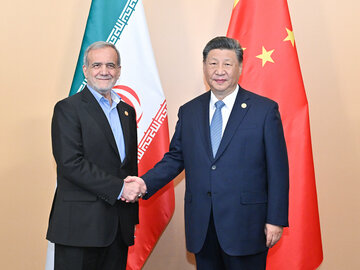(Ahlul Bayt News Agency) - Traveling for hours above the clouds, businessman Abdalhamid Evans could not perform most of his daily prayers on time while flying as he crosses various time zones at thousands of meters above sea level.
"I usually don't pray when I am in a plane," said Evans, the London-based founder of a website that provides information on the global halal, or Islam-compliant, industry.
"But lately I have been thinking that it is probably better to do them in the air than make them up on arrival," he said.
Evans’ work, like millions of Muslims worldwide, obliged him to miss some of the five daily prayers required from Muslims on certain times every day.
Recently, hope for solving the problem appeared thanks to an innovation called the Air Travel Prayer Time Calculator.
The tool, launched earlier this month, is developed by Singapore-based Crescentrating, a firm that gives halal ratings to hotels and other travel-related establishments.
The new online tool takes data such as prayer times in the country of origin, the destination city and in countries on the flight path and uses an algorithm to plot exact prayer hours during a flight.
Current programs only allow Muslims to find their prayer hours according to their position on land, and the absence of any tools that can be used to calculate during a flight has compromised many travellers.
"I knew there was lot of frustration among the travelers on this issue, but nobody had really attempted to solve it," Crescentrating chief executive Fazal Bahardeen told AFP in an interview.
Before embarking on a trip, a Muslim traveller can now go to the online calculator in the Crescentrating website and input their departure airport, time of flight and destination.
The calculator then comes up with the prayer times set either in the local time of the airport of origin, the destination city or the country that the aircraft is flying over, which the traveller can then email to themselves to access later.
The new tool won applauds from Muslim travellers.
With a growing number of Muslim travelers around the world, services catering to their needs are expanding, industry players say.
In 2010, Muslim travelers spent $100 billion, or about 10 percent of total global travel expenditures, according to Crescentrating's Fazal. This is projected to increase to 14-15 percent of the global total by 2020.
The World Tourism Organization last year estimated that an additional two million Arabs will travel overseas within the next twenty years, raising their region's total of outbound tourists to 37 million.
The Crescentrating team is also planning to develop as mobile app that will also point users in the direction of the Islamic holy city of Mecca, to which Muslims must face when they pray, based on the flight path, Fazal said.
"If it becomes a smartphone app .. it could prove to be a popular idea," said Evans.
Muslims pray five times a day, which each prayer made of a series of postures and movements, each set of which is called a rak‘ah.
The five prayer times are divided all through the day which starts with fajr prayer at dawn.
Then prayer times are divided from the time the sun declines, which is mid-day, until the darkening of the night, includes Zuhr (noon prayer), `Asr (evening prayer), Maghrib (sunset prayer) and `Ishaa’ (night prayer).
/129




